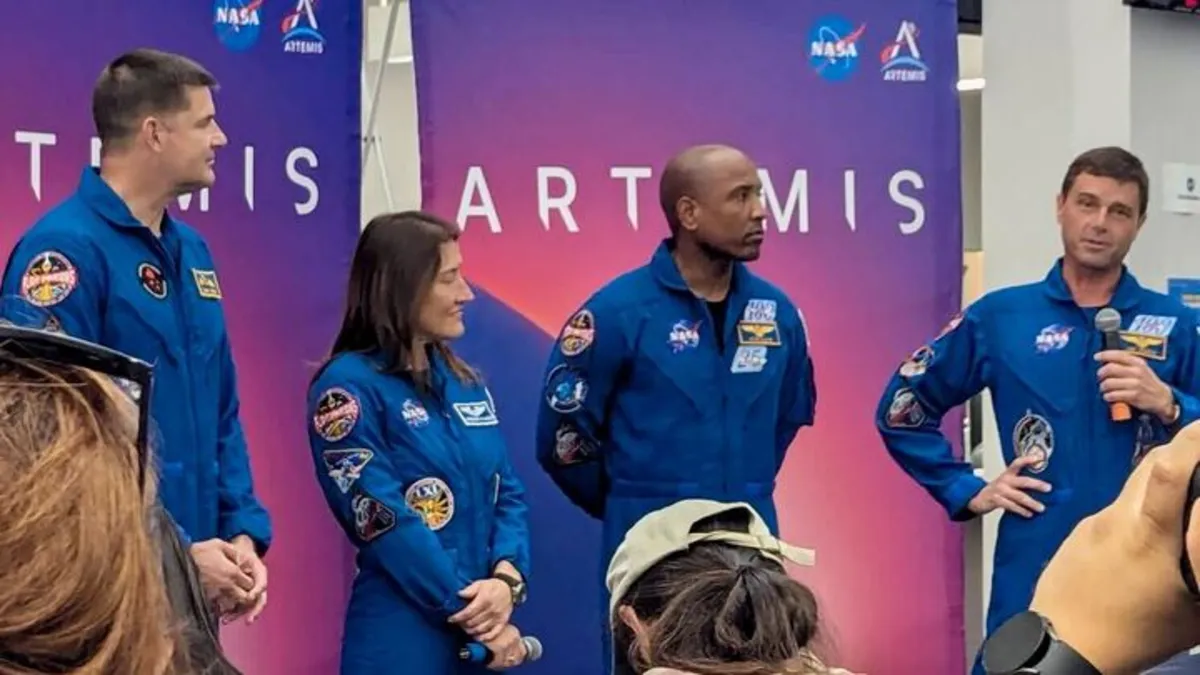
The upcoming Artemis 2 mission is poised to revolutionize our understanding of human health during deep space travel. Set to launch next year, this mission is the second phase of NASA's Artemis program, aiming to return humanity to the moon and establish a sustained presence beyond Earth. Notably, Artemis 2 will be the first crewed test flight of NASA's Orion spacecraft and Space Launch System (SLS) rocket.
The four-person crew of Artemis 2 will not only test the spacecraft in the cislunar environment but will also engage in a variety of scientific experiments. This mission represents a groundbreaking opportunity to gather in-flight data on the human body in deep space for the first time in over 50 years. The astronauts will serve as biomedical subjects, contributing to a vast repository of knowledge regarding the physiological impacts of space travel.
One of the primary objectives of the Artemis 2 astronauts is to contribute to a long-standing NASA initiative focused on understanding how spaceflight impacts human health. Prior to their launch, the astronauts will provide samples of blood, urine, and saliva. During their 10-day mission, they will undergo regular health assessments and follow-up evaluations upon their return. NASA aims to monitor changes in cardiovascular health, nutrition, immunity, and stress throughout various stages of training, flight, and recovery.
The Artemis Research for Crew Health and Readiness (ARCHeR) project will delve into how the crew's performance is influenced by extended time away from Earth in the confined space of the Orion spacecraft. Each astronaut will wear wrist sensors to track their movement and sleep patterns throughout the mission. By comparing pre- and post-mission evaluations to in-flight data, researchers hope to gain insights into how deep space conditions affect the crew's alertness, stress levels, and teamwork efficacy.
Additionally, samples collected from the crew will provide valuable information about their immune systems. By analyzing immune markers found in saliva samples, scientists will assess how the body responds to space radiation. To optimize space and energy aboard Orion, the crew will use specialized dab papers instead of refrigeration for their saliva samples. This innovative approach allows for easier storage and subsequent testing for dormant viruses that may be reactivated by the unique conditions of microgravity, a phenomenon previously observed aboard the International Space Station (ISS).
In an exciting twist, Artemis 2 astronauts will be accompanied by miniature models of themselves, known as thumb-sized avatars. These avatars are blood samples designed to simulate bone marrow on organ-on-a-chip devices. As Orion travels through the Van Allen belts—areas filled with charged particles—researchers will examine how the simulated marrow reacts to the dual challenges of deep space radiation and microgravity. The results will be compared to data from ISS experiments to evaluate the effectiveness of this chip technology in predicting tissue responses outside Earth’s protective magnetosphere.
Previous missions, such as Artemis 1, utilized a significant number of radiation sensors, with 5,600 passive and 34 active units onboard. For Artemis 2, the spacecraft will contain six active radiation sensors within the cabin, complemented by personal dosimeters worn by the astronauts. These devices will continuously monitor radiation exposure and detect sudden spikes, such as those caused by solar storms. In the event of dangerous radiation levels, astronauts will have the capability to create a makeshift radiation shield within Orion using the spacecraft's heat shield and water storage canisters, which are effective at absorbing harmful radiation.
As Artemis 2 prepares for its groundbreaking mission, the scientific research conducted will not only enhance our understanding of human health in deep space but also pave the way for future exploration beyond our planet. The findings from this mission will be invaluable as NASA aims to ensure the safety and well-being of astronauts on long-duration spaceflights.